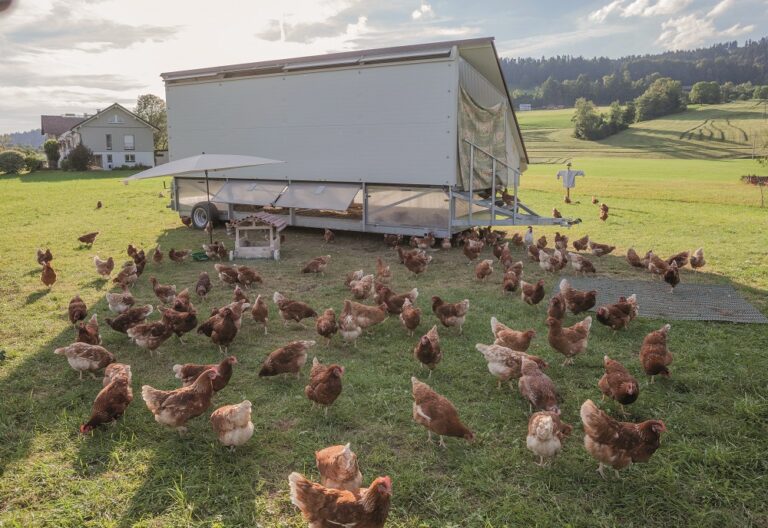Poultry farmers could be paid for animal welfare outcomes, under new proposals being considered by the government.
Unlike other agricultural sectors, the poultry industry in Britain has always been unsubsidised and has grown to its current scale on the strength of its ability to meet the demands of the market alone.
But all that could be about to change. Under new plans being developed by Defra, egg and poultrymeat producers could be paid by government to deliver on improved animal welfare outcomes.
There are many unanswered questions: How do you measure animal welfare? How much money should be paid to farmers? What happens to producers already meeting certain targets through certain assurance schemes? And what kind of distorting effect would such a scheme have on the market?
The proposals are currently being analysed by a group of academics and consultants, led by Dr Siobhan Mullins of the University College Dublin (UCD). A cost / benefit analysis by the group, which also includes Bristol University, the Royal Agricultural University and ADAS, will be presented to Defra at the end of 2021 and it is expected payments will start to be made to poultry producers as early as 2023.
Mullins was one of the speakers at this year’s South West Chicken Association (SWCA) conference, held digitally in April. She explained the reasons Defra is considering such a dramatic intervention into the market, and what such a scheme could look like in the coming years.
Defra’s Animal Health & Welfare Pathway covers six species, including laying hens and broiler chickens. The motivation, she explained, was that currently, consumers tell government they value higher welfare standards, but their behaviour in the supermarket doesn’t reflect that, with 94% of poultrymeat sales made up of standard chicken.
“The government’s role is to step in when they feel societal values are not being reflected in the market, or their policy aims,” said Mullins. “So, we do know there are issues with price transmission for higher welfare products. The market is not perfect and therefore there are some limitations on what it is there to enable. But for me, I completely see why government wants to look at it because the market only delivers 6% above standard. We want it to be higher than that, but consumers won’t pay for it, therefore why don’t we pay for it?”
Mullins said it was likely there would be two ways for producers to be paid. “Current expectations are a grant scheme will be in place by 2023, and a payment by results scheme in place by 2024.” However, it ultimately works, vets are likely to be a key part of the scheme. “The preference is that this would be the farmer’s own vet,” says Mullins. “Someone who can point out the options that would be most suitable for that farm.”
As part of the research Mullins is carrying out for Defra, her team is currently interviewing farmers to understand the costs of delivering higher welfare standards. This will be followed up by more detailed phone interviews to understand all the views on the payment by results proposals. The group will then at the end of 2021 present a cost / benefit analysis tool to Defra to make decisions on how to proceed.
So far, the top three welfare measures suggested by farmers are reducing stocking density, use of slower growing breeds, and more enrichment. Other measures suggested by producers that could deliverable if paid for include low levels of poor gait score, low levels of hock burn and pododermatitis and a minimum six hours of darkness.
Looking ahead, Mullins said the payment by results scheme may be a stepping-stone ultimately to raising minimum welfare standards in law.
“The government’s clear stated aims are raising the baseline,” she said. “Regulation may be most useful way to address that. You might want to encourage farmers initially, with a payment by results scheme, and then when sufficient farmers have moved, only then do you consider regulatory change.”
At this stage there are many unanswered questions. One of those is how you respond to farmers who are already producing poultry with additional welfare measures in place. Another is the complex issue of how you really understand the affect on the animal of any additional welfare measures put in place.
“There is a tension between monitoring inputs to the animal and animal welfare outcomes,” said Mullins. “Inputs are really important, whether that be genetics, stocking density, enrichment, but they don’t always deliver specific outcomes. But the trouble with monitoring outcomes is sometimes this is really time consuming and difficult to do.
“What is very clear is you need some kind of evidence base, and that is clearly going to lead to public, government and NGO scrutiny.”
What’s also unclear is who would carry out the outcome assessments? Mullins said there were several options, including existing farm assurance schemes, or government inspections, both of which would come with additional costs. “What is clear is there is zero appetite for another person walking up the farm drive,” said Mullins. Be that as it may, it seems that is exactly what is going to happen.


